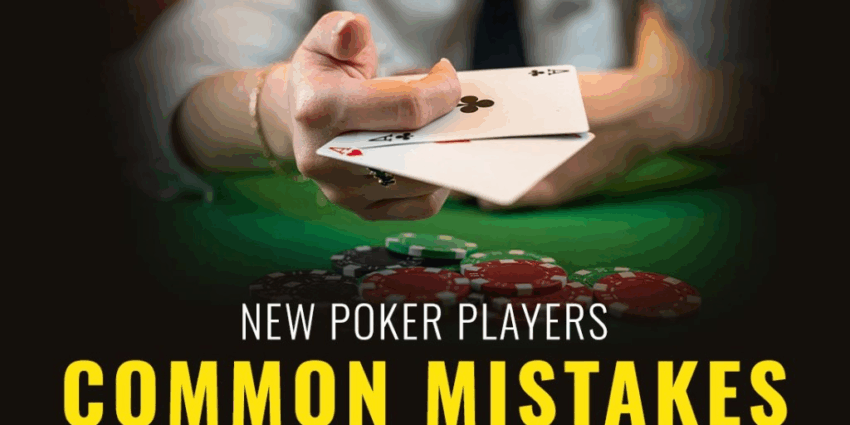Common mistakes in poker tournaments can make a significant difference between an early exit and a triumphant finish at the final table. Many players, even the experienced ones, often overlook foundational strategies that could enhance their tournament performance. Whether you’re dealing with poor stack management or failing to adjust your style of play, these pitfalls are vital to recognize. In this article, we will delve into common mistakes in poker tournaments and provide key tournament poker strategy insights to help you navigate the card tables effectively. By avoiding these errors, you’ll not only improve your chances of success but also develop a more strategic mindset essential for poker playing tips.
Entering the world of competitive poker can be thrilling, but it’s also fraught with challenges that players must overcome. In tournament play, there are various amateur blunders that can quickly derail your efforts—such as mismanaging your bankroll or neglecting to read your opponents. By understanding the best practices in poker tournaments, every player can refine their approach and avoid common tournament mistakes that lead to premature exits. This discussion focuses on essential poker tournament advice for both newcomers and seasoned players alike, emphasizing the need for strategic flexibility and discipline to excel in this high-stakes environment.
Understanding Common Mistakes in Poker Tournaments
When participating in a poker tournament, recognizing the common mistakes that players easily fall into is vital to success. One of the most frequent errors is failing to properly assess stack sizes. Many players underestimate or overlook their chip count and those of their opponents, which can dramatically influence their decision-making. Missing the opportunity to apply pressure on shorter stacks or risking their own tournament life with poor chip management can lead to premature exits from the competition. Understanding where you stand is not merely about counting chips; it also involves implementing effective tournament poker strategy to maximize your position.
Moreover, many players neglect adapting their strategies as the tournament progresses. Each phase of a tournament should dictate how one plays; remaining rigid can be detrimental, especially as blinds increase and player dynamics shift. By continuously observing your opponents and integrating this knowledge into your strategy, you can adjust effectively and capitalize on opponents’ mistakes. Avoiding common mistakes in poker tournaments by focusing on these adaptive strategies is essential for both early and later stages in the competition.
Best Practices in Poker Tournaments: Tips to Avoid Mistakes
To enhance your overall performance in tournaments, adhering to best practices is crucial. One key practice is developing a disciplined approach regarding hand selection. Playing too many hands, particularly in the early stages when the stakes are low, can lead to unnecessary chip loss. Focusing on poker playing tips such as sticking to stronger hands will serve you better in the long run. This disciplined strategy allows you to build your stack gradually while observing your opponents’ tendencies, which can be invaluable information.
Additionally, managing your bankroll is one of the best practices that novice and seasoned players alike often overlook. Engaging in tournaments beyond your bankroll can lead to rushed decisions made out of financial pressure. Striking a balance between excitement and fiscal responsibility will not only improve your mental state but will also enable you to play with confidence. By integrating these best practices into your poker tournament strategy, you enhance your chances of success while enjoying the thrilling nuances this game offers.
Frequently Asked Questions
What are the most common mistakes in poker tournaments that players should avoid?
Some common mistakes in poker tournaments include underestimating stack sizes, playing too many hands, failing to adjust your strategy, neglecting table position, ignoring opponent reads, and mismanaging your bankroll. Avoiding these pitfalls can significantly enhance your tournament poker strategy and improve your chances of success.
How can I improve my poker tournament strategy and avoid common mistakes?
To improve your poker tournament strategy, focus on avoiding common mistakes such as playing too many hands and not adapting your strategy as the tournament progresses. Implement best practices like careful stack management, understanding table position, and paying attention to your opponents’ betting patterns. These poker playing tips will help you make better decisions and increase your performance in tournaments.
| Mistake | Description |
|---|---|
| Underestimating Stack Sizes | Failing to accurately assess stack sizes can lead to poor decisions in calling, raising, or folding. |
| Playing Too Many Hands | Overplaying weak hands can result in early eliminations. |
| Failing to Adjust Strategy | Not adapting your gameplay as the tournament progresses can lead to missed opportunities. |
| Not Considering Position | Neglecting table position can result in poor decisions during play. |
| Ignoring Opponent Reads | Focusing solely on one’s own cards without observing opponents can provide disadvantages. |
| Mismanaging The Bankroll | Entering tournaments outside your budget can lead to pressured decision-making. |
Summary
Common mistakes in poker tournaments can significantly hinder your performance and lead to early exits. Throughout this journey into the world of tournament poker, we’ve uncovered critical errors that players, whether novices or experienced, repeatedly encounter. By simply being aware of issues such as underestimating stack sizes, playing too many hands, failing to adapt strategies, neglecting position, ignoring reads on opponents, and mismanaging bankrolls, you can enhance your game. Each aspect we’ve discussed plays a crucial role in shaping your success in tournaments. Remember, poker is not just about the cards you hold, but about how you navigate the complexities of the game. By heeding the lessons learned, you can not only improve your strategy but also extend your participation in tournaments, ultimately enhancing your enjoyment of the game.
